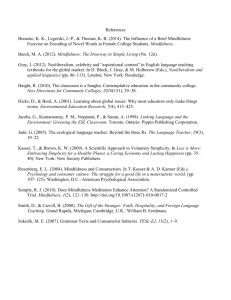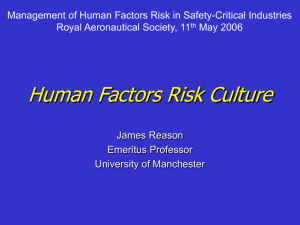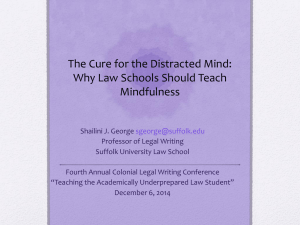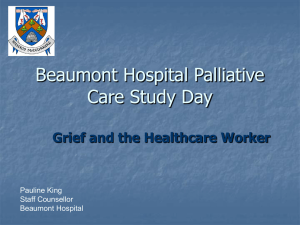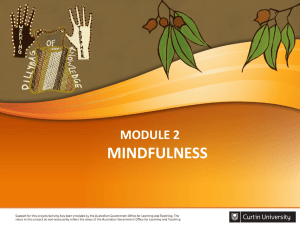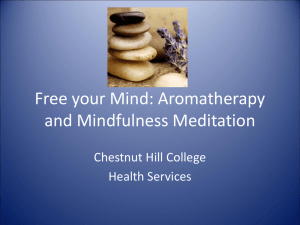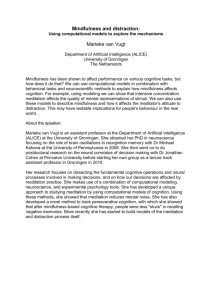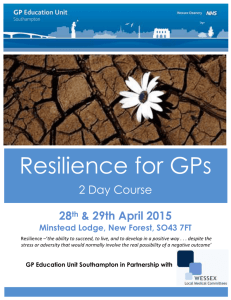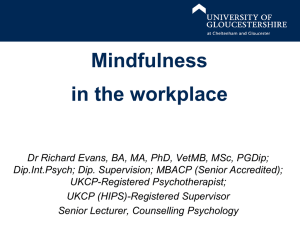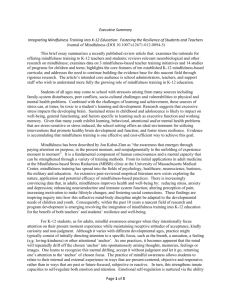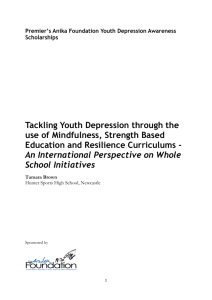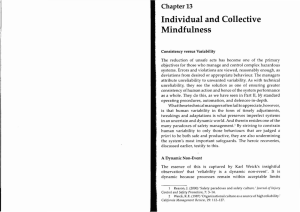Building Resilience and Mindfulness
advertisement
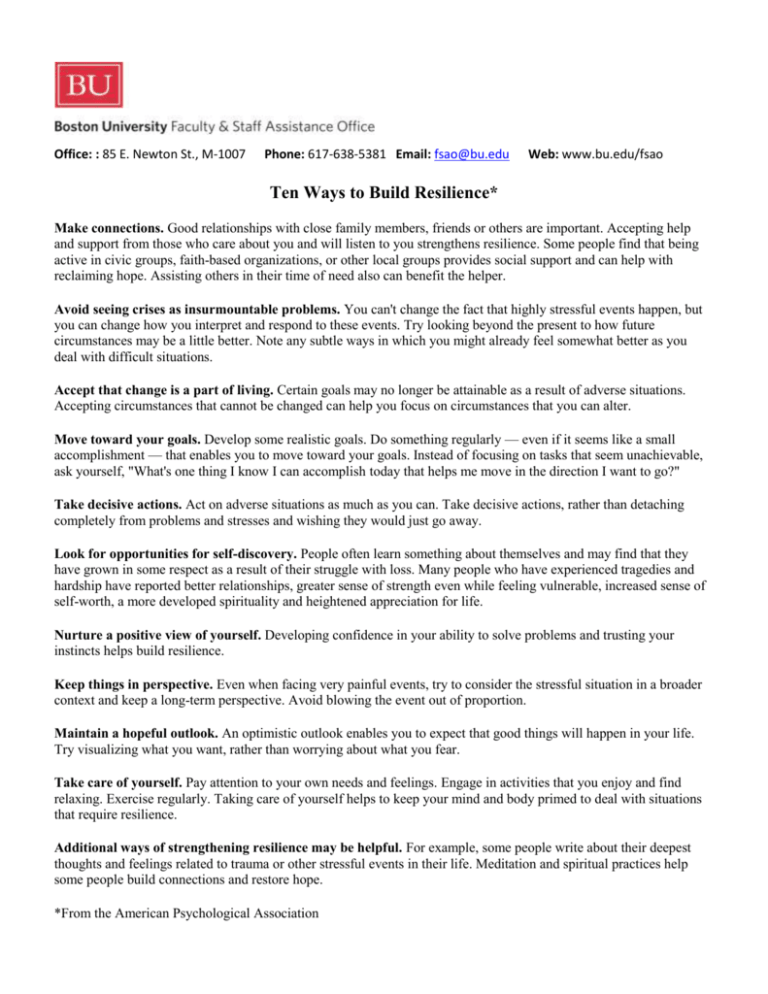
Office: : 85 E. Newton St., M-1007 Phone: 617-638-5381 Email: fsao@bu.edu Web: www.bu.edu/fsao Ten Ways to Build Resilience* Make connections. Good relationships with close family members, friends or others are important. Accepting help and support from those who care about you and will listen to you strengthens resilience. Some people find that being active in civic groups, faith-based organizations, or other local groups provides social support and can help with reclaiming hope. Assisting others in their time of need also can benefit the helper. Avoid seeing crises as insurmountable problems. You can't change the fact that highly stressful events happen, but you can change how you interpret and respond to these events. Try looking beyond the present to how future circumstances may be a little better. Note any subtle ways in which you might already feel somewhat better as you deal with difficult situations. Accept that change is a part of living. Certain goals may no longer be attainable as a result of adverse situations. Accepting circumstances that cannot be changed can help you focus on circumstances that you can alter. Move toward your goals. Develop some realistic goals. Do something regularly — even if it seems like a small accomplishment — that enables you to move toward your goals. Instead of focusing on tasks that seem unachievable, ask yourself, "What's one thing I know I can accomplish today that helps me move in the direction I want to go?" Take decisive actions. Act on adverse situations as much as you can. Take decisive actions, rather than detaching completely from problems and stresses and wishing they would just go away. Look for opportunities for self-discovery. People often learn something about themselves and may find that they have grown in some respect as a result of their struggle with loss. Many people who have experienced tragedies and hardship have reported better relationships, greater sense of strength even while feeling vulnerable, increased sense of self-worth, a more developed spirituality and heightened appreciation for life. Nurture a positive view of yourself. Developing confidence in your ability to solve problems and trusting your instincts helps build resilience. Keep things in perspective. Even when facing very painful events, try to consider the stressful situation in a broader context and keep a long-term perspective. Avoid blowing the event out of proportion. Maintain a hopeful outlook. An optimistic outlook enables you to expect that good things will happen in your life. Try visualizing what you want, rather than worrying about what you fear. Take care of yourself. Pay attention to your own needs and feelings. Engage in activities that you enjoy and find relaxing. Exercise regularly. Taking care of yourself helps to keep your mind and body primed to deal with situations that require resilience. Additional ways of strengthening resilience may be helpful. For example, some people write about their deepest thoughts and feelings related to trauma or other stressful events in their life. Meditation and spiritual practices help some people build connections and restore hope. *From the American Psychological Association Mindfulness and Resilience Increased mindfulness has been shown to improve people’s resilience. Mental exercises which strengthen the ability to direct attention and maintain a calm and steady awareness help one cope effectively with a wider range of stressors. Here are some resources of use for developing the ability to respond rather than to react to challenges: Apps: Headspace (download their free "Take 10" program) www.getsomeheadspace.com The Mindfulness App by MindApps ($1.99) www.mindapps.se Mindfulness Meditation from Mental Workout (portions available at no cost) www.mentalworkout.com Websites: UCLA's Mindful Awareness Research Center: http://marc.ucla.edu Free podcasts available on iTunes Mind & Life Institute: http://www.mindandlife.org/about/history/dialogues-and-publications/ The Center for Mindfulness (UMASS Medical School): http://www.umassmed.edu/Content.aspx?id=41252 UCSD's Center for Mindfulness (good audio resources list - links to Amazon) http://cme.ucsd.edu/mindfulness/index.html Harvard Pilgrim Healthcare’s Mind the Moment Program http://harvardpilgrim.org/mindfulness University of California, Berkeley, Greater Good Science Center: http://greatergood.berkely.edu Books: Wherever You Go, There You Are: Mindfulness Meditation in Everyday Life. Jon Kabat-Zinn. Hyperion. 1994. Less: Accomplishing More by Doing Less. Marc Lesser. New World Library. 2009. Fully Present: The Science, Art, and Practice of Mindfulness. Susan L. Smalley, PhD and Diana Winston. Da Capo Press. 2010
